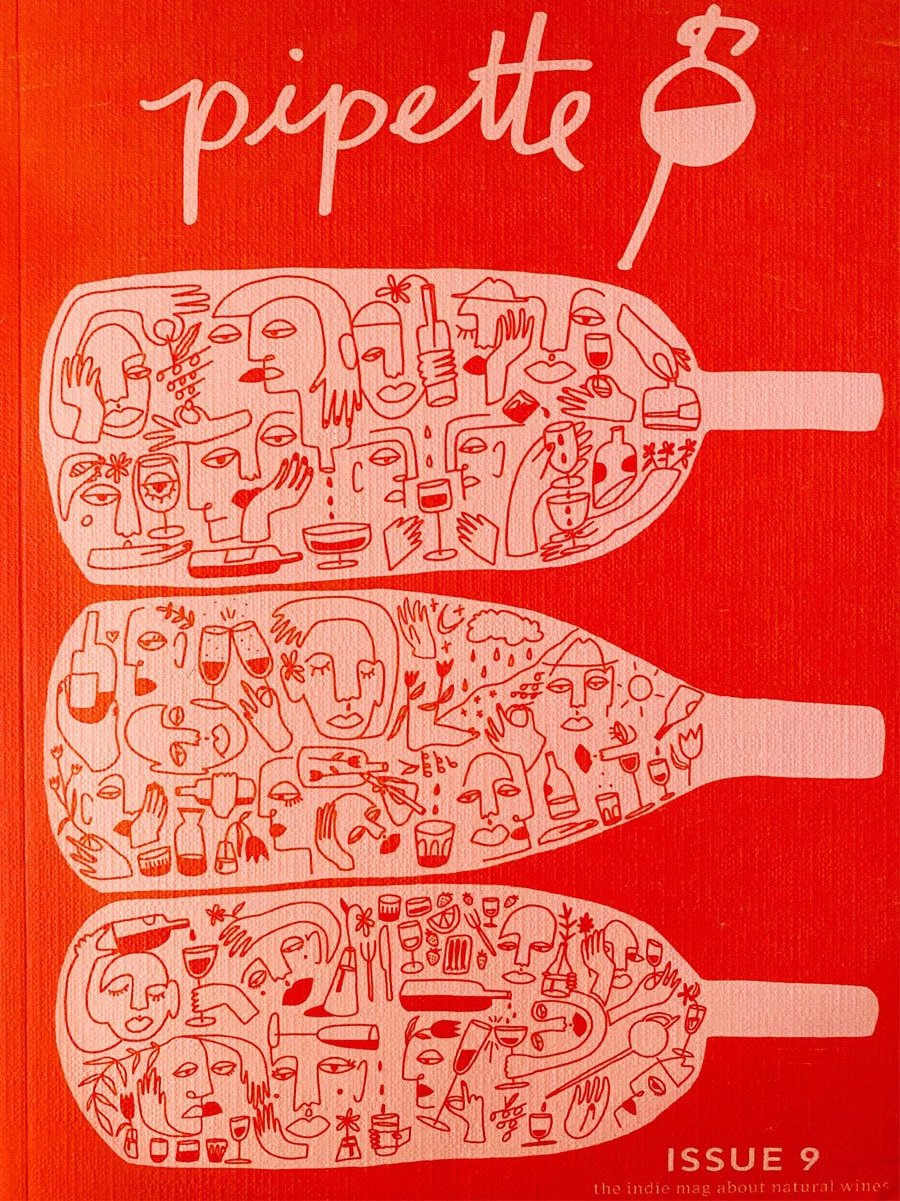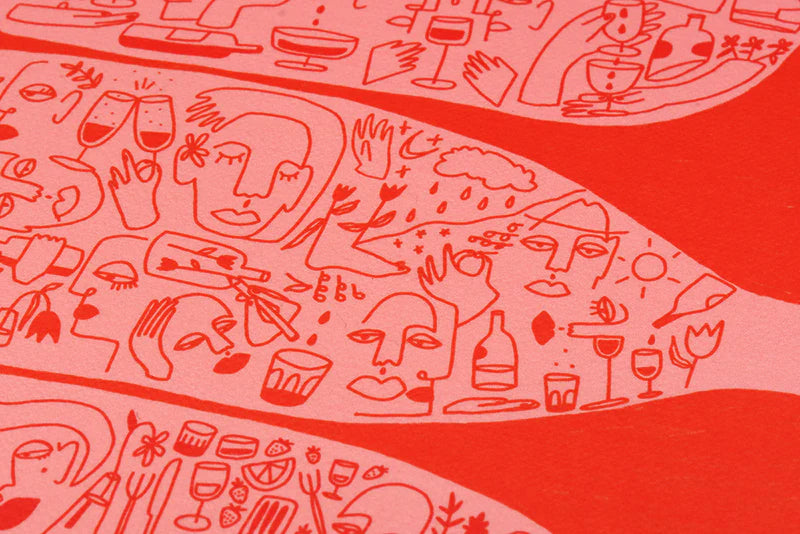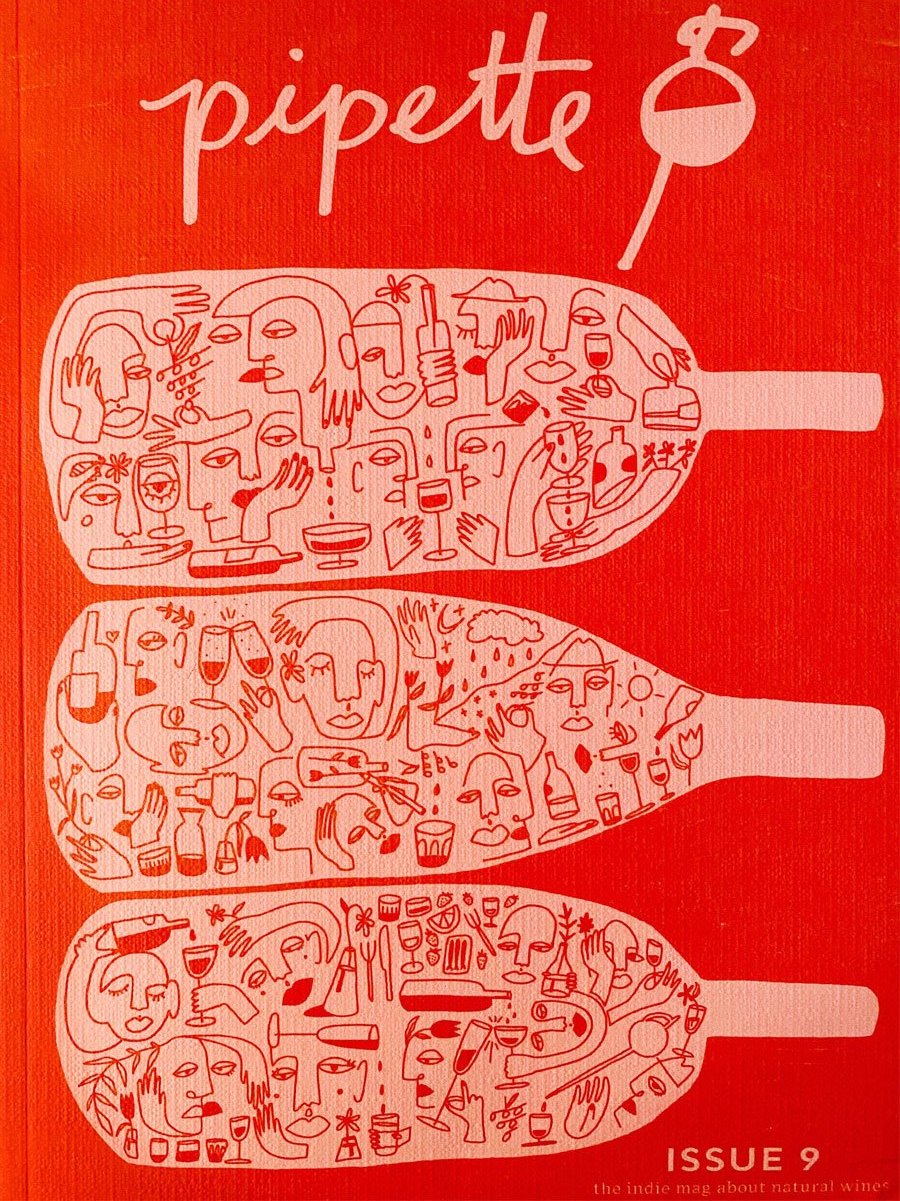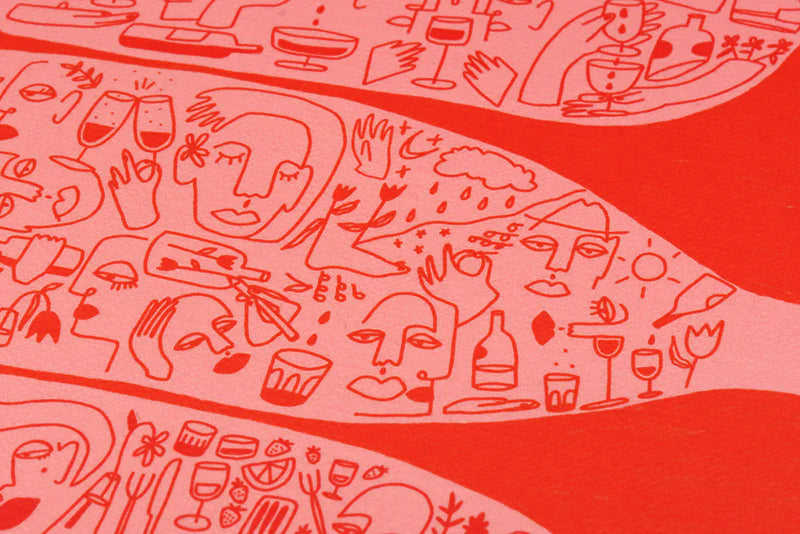Pipette ISSUE 9
Pipette ISSUE 9
Couldn't load pickup availability
Issue 9:
INTERVIEWS, ESSAYS & FEATURES
An interview with the first (and only!) natural winemaker in Finland; an essay by Brooklyn wine professional Alex Alan on how post-2020 New York restaurant culture might look; a long, powerful interview with Lauren Friel of Rebel Rebel (Boston) on why natural wine is definitely political and what she’s doing about it; a story about one of our boutique magazine stockists in Stockholm who are making sure that print isn’t dead; the story behind the iconic “Vine Wine Sign”; and a look at how Canada’s hottest new natural winery leverages branding.
Plus: a feature on Joy Kull aka La Villana (Lazio, Italy); and a photo essay by Twin Island Cider (British Columbia) who documents their own clay harvesting and vessel making process.
RECIPES FROM NATURAL WINEMAKERS
Contributions from La Stoppa (Italy); MicroBio Wines (Spain); Martha Stoumen (U.S.); Gut Oggau (Austria); and Alessandro Viola (Sicily).
Share


Organic, Biodynamic and Natural wine. What’s the difference?
To understand this concept and its various ramifications, it is necessary to keep something clear in mind: before the 20th century and the spreading of affordable synthetic fertilisers, all farming was organic. When the shift to the use of synthetics and pesticides happened, it became necessary to diversify traditional organic farming from the new modern farming.
ORGANIC WINE
Simply put, organic farming forbids the use of synthetic fertilisers, synthetic pesticides, herbicides, or genetically modified organisms. The basic requirements are generally specific and engage the farmers not to use any chemical fertilisers and other synthetic products in the vineyard. It does not prevent the vintner from using the conventional winemaking process after harvesting.
BIODYNAMIC WINE
Let’s take organic farming one step further: Biodynamic. The creator of this agricultural system is the Austrian philosopher Rudolf Steiner, who developed the principles of biodynamics in a series of lectures given in 1924 in Germany. Here lies the foundation of true organic wines, with a strict limit in the use of additives, stringent requirements and at the end obtaining a biodynamic certification.
NATURAL WINE
The previous definitions are usually, and rightfully, associated with it, because most natural wine is also organic and/or biodynamic. But not vice versa!
Natural wine is wine in its purest form, simply described as nothing added, nothing taken away, just grapes fermented. No manipulation whatsoever, minimal intervention both in the vineyards and in the winery. Healthy grapes, natural yeast and natural fermentation, with no filtration nor fining. Sounds easy, right? However, making natural wine is unforgiving and it requires a bigger amount of work than conventional wine. To this day, natural wine has no certification yet.


